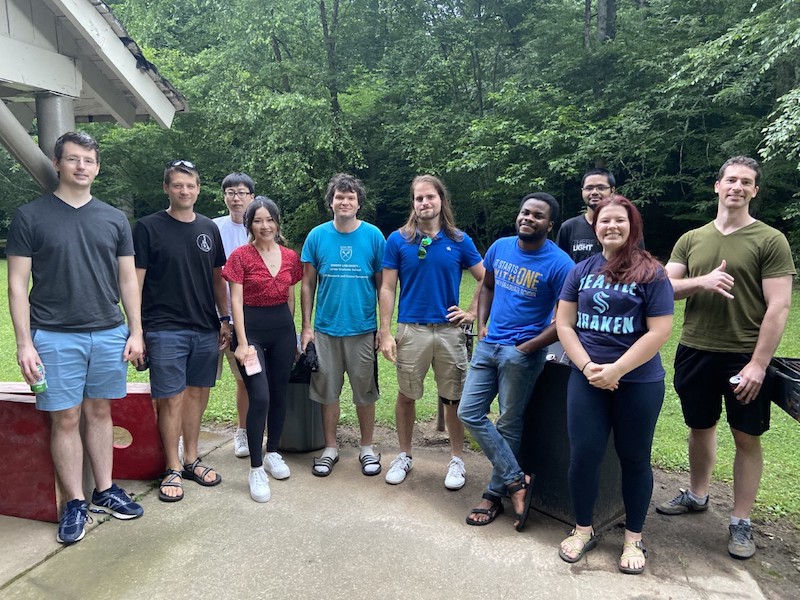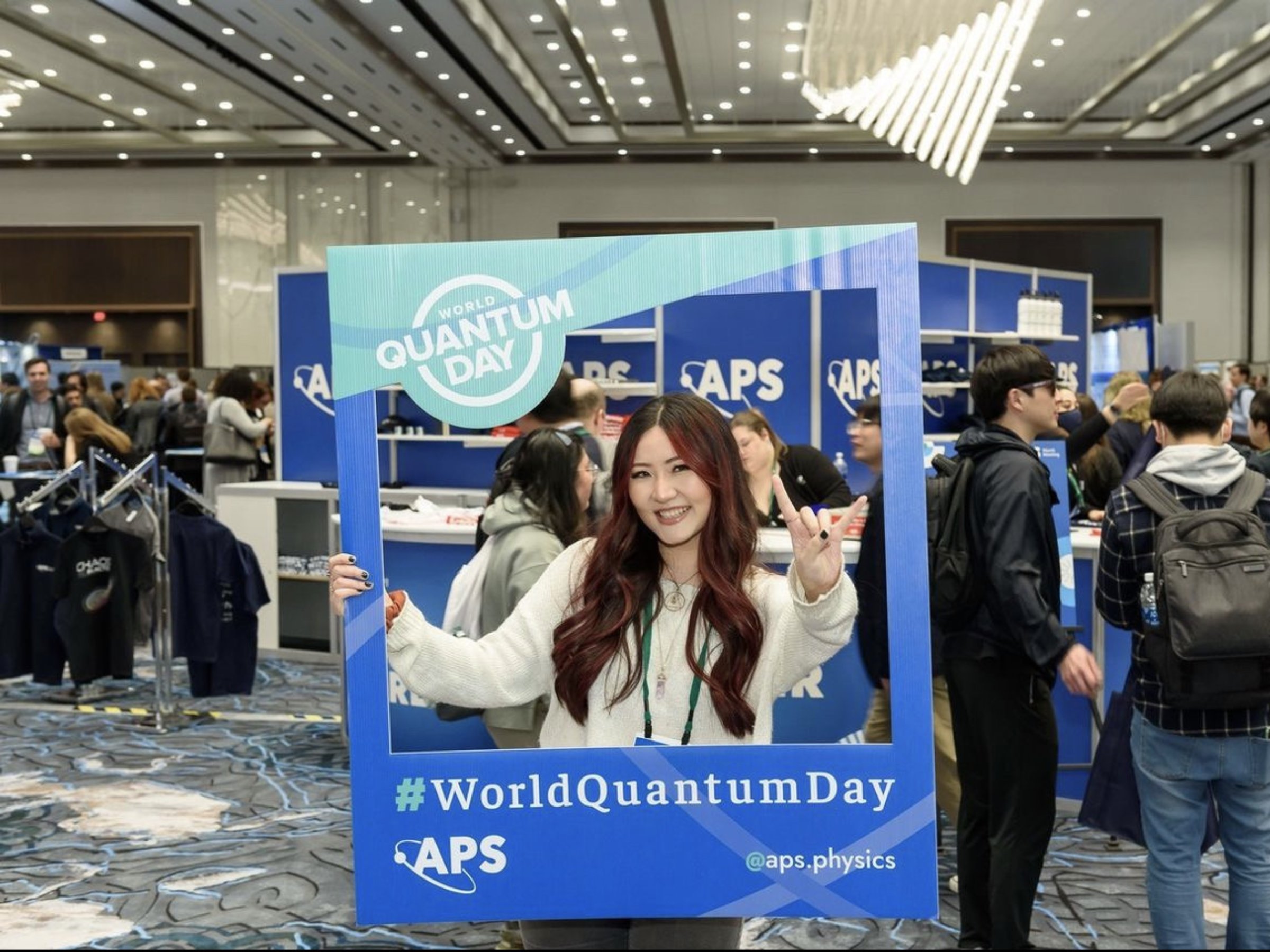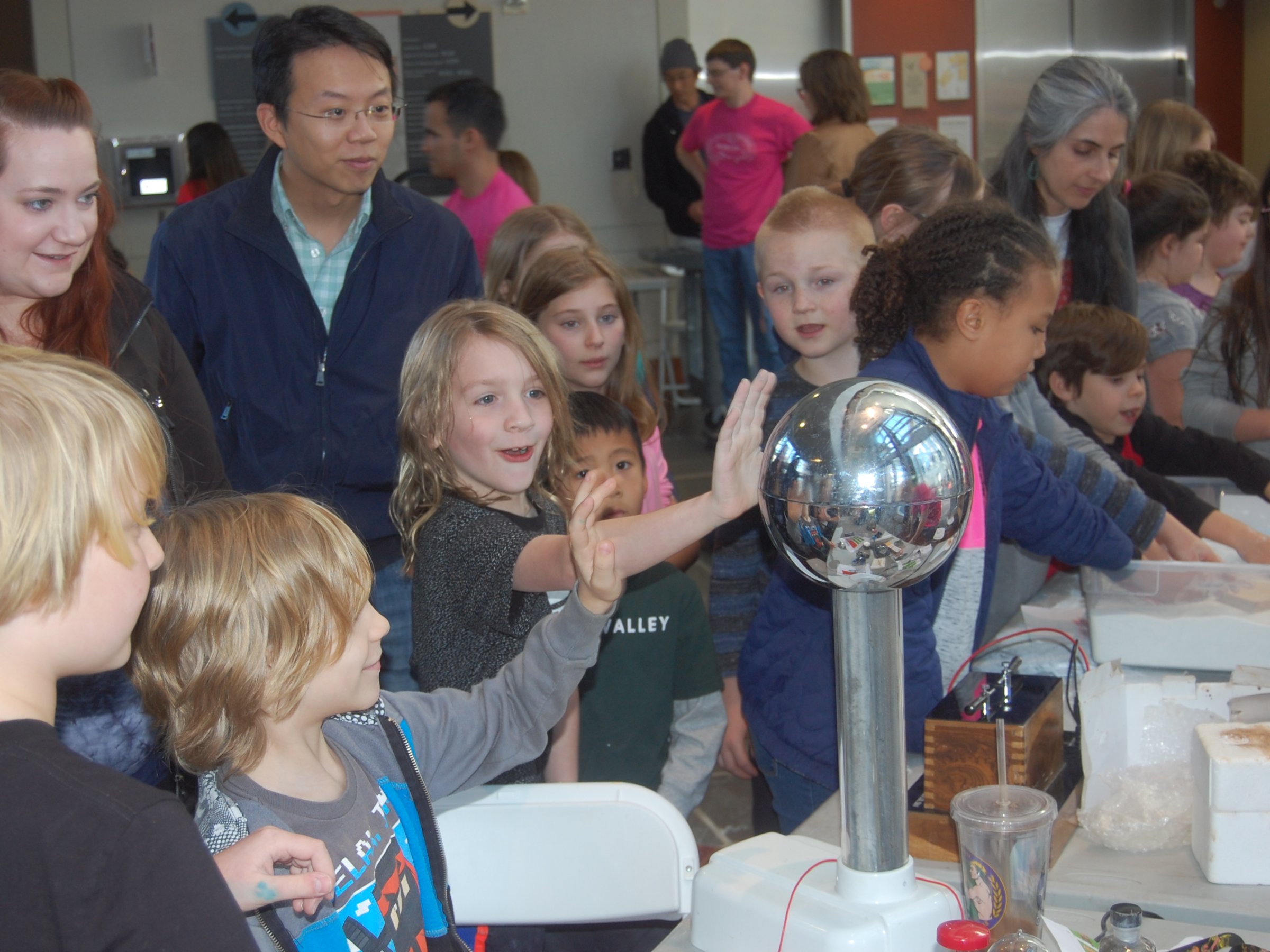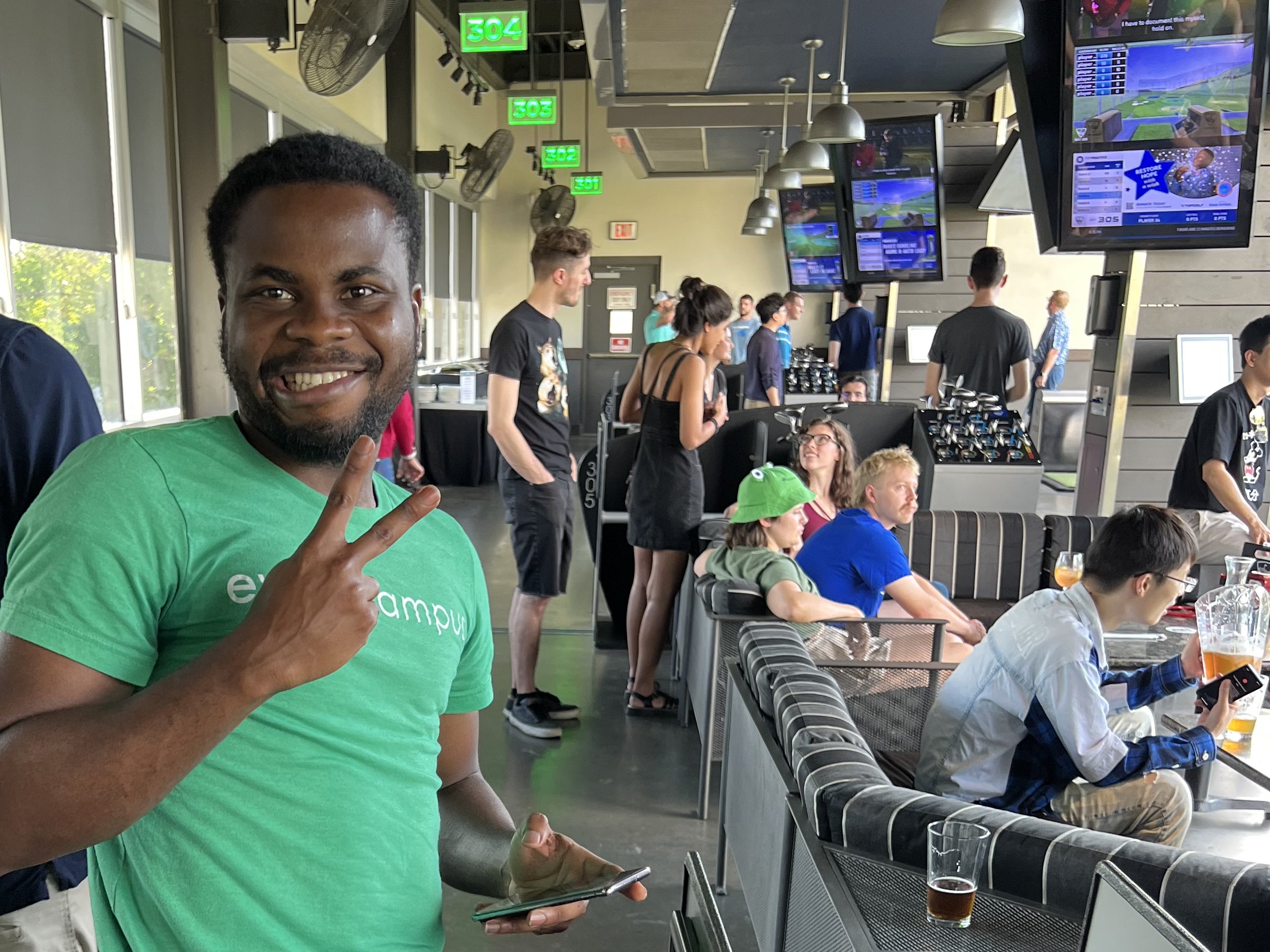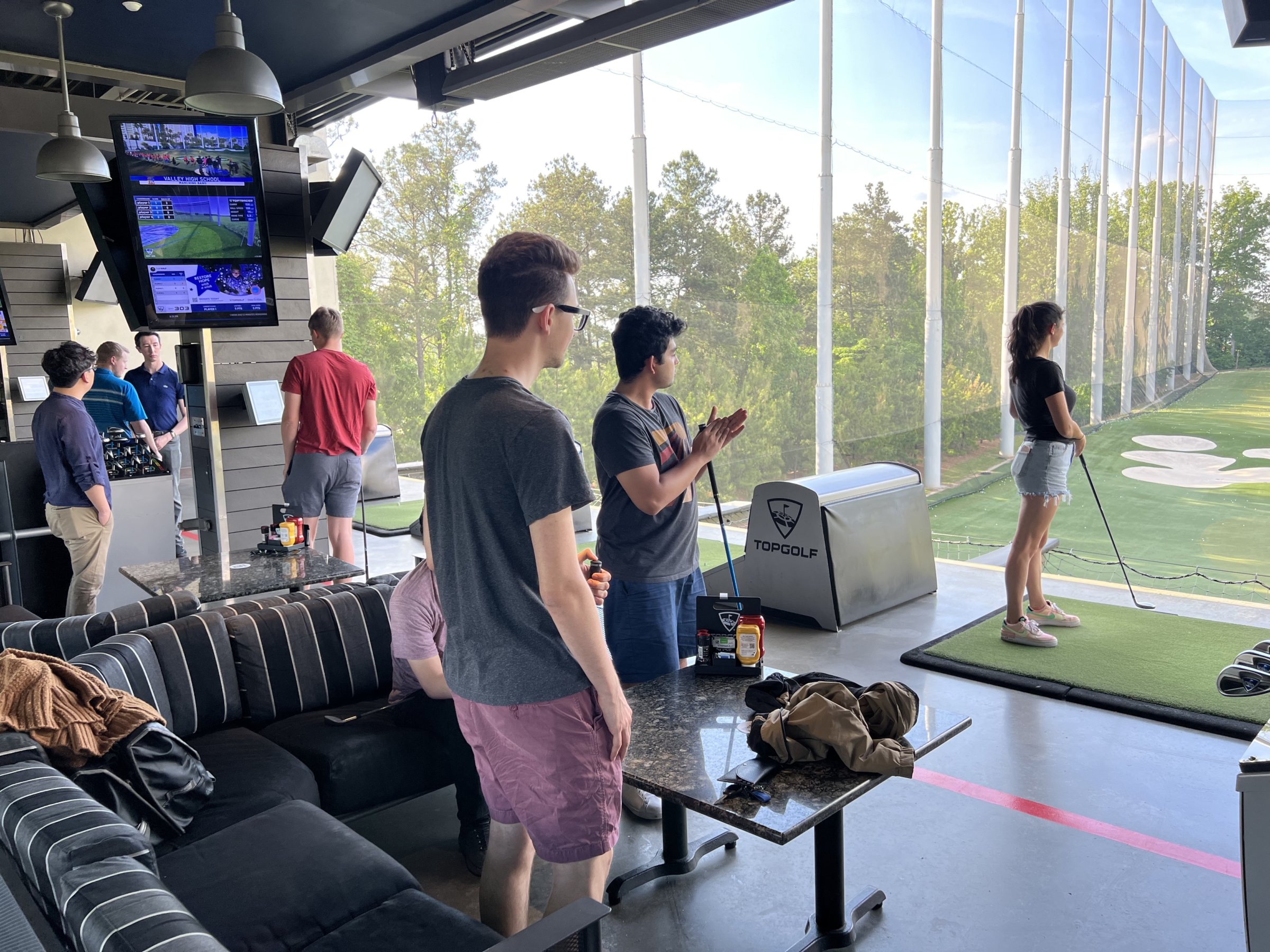Graduate Student Life
Young Emory Physicists
The Young Emory Physicists (YEP) is a graduate student organization whose purpose is to promote interaction among Emory Physics Department graduate students and other Emory students interested in Physics. YEP is sanctioned by the Emory Student Government. Activities are held throughout the year, and include leisure events and forums for the discussion of topics in physics. YEP also provides support for new graduate students in the Physics Department. YEP aims to promote Emory Physics and to maximize the quality of life among Physics graduate students.
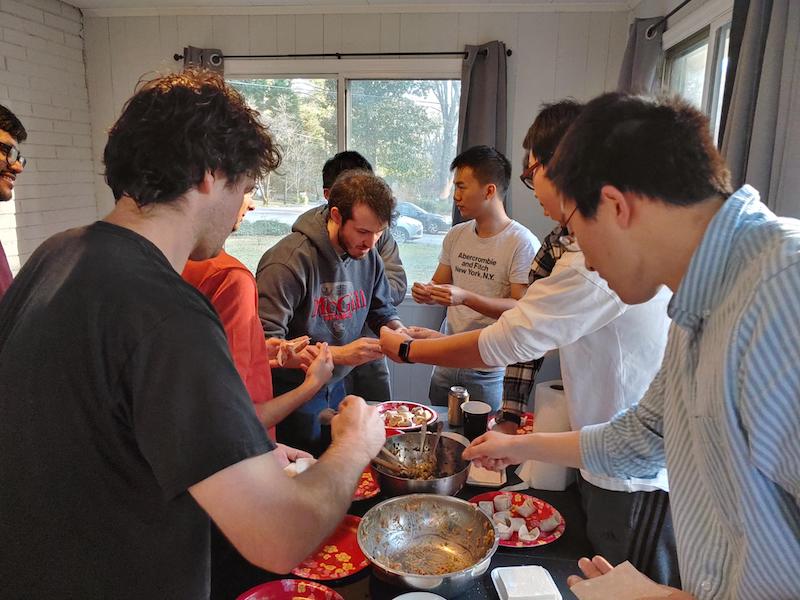
International Students and Scholars at Emory
SACNAS @ EMORY - Emory advancing Chicanos/Hispanic and Native Americans in STEM
Emory Physics Cookbook
Life in a new city can be challenging at first, but good food can make it feel like home! The Emory Physics graduate students and faculty maintain a cookbook with many recipes to satisfy all tastes. Check it out here!
Graduate Student Research Awards
Internal Graduate Awards
Montag Award
The Jim and Ethel Montag Graduate Physics Award is awarded annually to an exceptional graduate student for accomplishments in physics research. Recipients receive an additional $2000 to their stipend the year they receive the award. The award is granted to the student (US Citizens only) with the most significant accomplishment in research. The 2014-2015 academic year represents the first year this award is being given. The Montag Graduate Physics Award was established by James L. Montag (58C) and his late wife Ethel in honor of Prof. Fereydoon Family, for his mentoring and academic influence of their son Lee Montag (85C).
Award recipients:
David Meer - 2024
Katie Whitcomb - 2023
James Merrill - 2022
Dana Harvey - 2021
Yannic Gagnon – 2020
Robert Lemasters – 2019
Ryan Freeman – 2018
Dominic Robe – 2017
Roman Baglay – 2016
Skanda Vivek – 2015
Laura Gray – 2014
Excellence in Graduate Research
The Excellence in Graduate Research Award is given annually to a physics graduate student with outstanding research accomplishments. It is open to all physics graduate students with no restrictions. Recipients receive an additional $500 to their stipend for the award. The award is currently funded by the Emory Department of Physics.
Award recipients:
Alex Couturier (co-winner) - 2024
Ankita Ankita (co-winner) - 2024
Tomilola Obadiya (co-winner) - 2023
Tharindu Rajasooriya (co-winner) - 2023
Wentao Yu (co-winner) - 2022
Jin Qian (co-winner) - 2022
Wei Li (co-winner) - 2021
Mahajabin Rahman (co-winner) - 2021
Weijie Li (co-winner) – 2020
Guanxiong Chen (co-winner) – 2020
External Graduate Awards
2020 Science ATL Communication Fellowship – James Merrill
2020 GSNP Student Speaker Finalist – Guram Gogia
2016 Biophysical Society Awards – Yan Yan (Student Research Achievement and Travel Award)
2015 Shirley Chan Student Travel Award – Vijay Singh
2014 Frank J. Padden Jr. Award – Justin Pye
2012 GSNP Student Speaker Winner – Gary Hunter
Journal Clubs
The Molecular Biophysics Journal Club
The Molecular Biophysics Journal Club meets weekly to discuss current and classic research topics in the area of Molecular Biophysics. Each week a member presents a journal article that is discussed by the group. All students, faculty, and research staff with an interest in biophysics are welcome to attend. Meetings are held Wednesdays at 12:00 in room N215. Bring a lunch if you wish. For more information, please contact Professor Kurt Warncke.
The Soft Condensed Matter Journal Club
The Soft Condensed Matter Journal Club meets weekly throughout the entire year. Topics vary widely and are influenced by the current interests of those in the journal club. Journal club participants include both experimental and theory students; anybody is welcome to join. For more information, please contact Professor Connie Roth.
The Theoretical Physics Journal Club
The Theoretical Physics Journal Club meets weekly to discuss research topics in area of theoretical, statistical & computational physics. Graduate students and faculty members of the computational/statistical physics groups select and discuss a journal article every week. The club is open to anyone having interest in theoretical/statistical physics. For more information, please contact Professor Stefan Boettcher.

